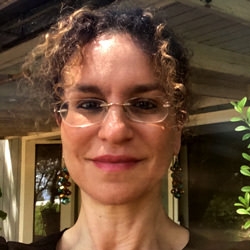

NVC Resources on Peace
-
Control may help us feel safe in an unpredictable, unsafe, wild world. Wanting control may be a response to shielding ourselves from feeling fear and being aware of our vulnerability. The more we insulate from fear, discomfort, and vulnerability, the more we are cut off from aliveness; we can become more anxious, and depressed. The more we control the more we are disconnected from empathy and care. With aliveness come joy, peace, love, awe.
-
We can see anger as an alarm or signal that can inform us that unmet needs require attention, or that we hold judgements. We can shift our own anger in several healthy ways: get present, identify the stimulus and any judgements or unmet needs, look for ways to meet our needs, make requests that support our needs, express our needs to ourselves and appropriate others, and more.
-
When avoidance coping or positive thinking sidesteps challenges, internal and external injustice and unrest also rises as we sidestep our values and integrity. It leaves us in sadness and distress. What's unacknowledged impacts ourselves and others undesirably. To live nonviolently we need to be in touch with what's real. With resonance we can more likely be with what's true, and trust our resilience and inner alignment.
-
When deciding if someone crossed your boundaries and how to respond, you may get conflicting opinions on it. These opinions can be coarse attempts to manage life with rules about what should(n’t) happen. Instead, so that you can find where you want to invest your energy, ask yourself questions that reveal what for you is truly in integrity, nourishing, connects to your heart, and deepens self understanding. Read on for examples.
-
So many of us have a habitual response of trying to eliminate uncertainty and the arrival of what we don't want. Alternatively, we can embrace the irreducible uncertainty of life. This shift from resistance and helplessness to mourning allows acceptance of outcomes, reduction of stress, and opens the door to noticing and appreciating what's present and available amidst challenges.
-
Join Aya Caspi, a Certified NVC Trainer, as she delves into the difficult topic of parenting, childhood trauma, and social status. She discusses the generational impact of being labeled by society as "less than" or subservient. The wounds of childhood trauma can be healed so they no longer are a means of control by a dominant culture.
-
Our brains often quickly categorizes things as good, bad, right, or wrong and then determines who’s to blame or praise. Maybe this supports the illusion of order and predictability, thus provides a false sense of safety and reassurance. But its less effective in truly meeting our needs. By practicing "Living in the Observation," we can focus on reality, avoid unhelpful rumination, and find peace and empowerment in everyday life.
-
Aid for translating non-feelings (words implying blame) into NVC feelings and needs.
-
Want to learn how to live your life more fully than you ever dreamed? In this course you’ll learn how you can shake off old behaviors that no longer serve you, get inspired to embrace a daily happiness practice, and begin experiencing a brand new sense of personal joy and inner peace.
-
Responding to your own reactivity is an inside job. Robert reveals how your reactions are often a secondary reaction to a triggering stimulus, and that accepting responsibility for your reactions can lead to less blame and more inner peace.

Quick Links
Subscription Preferences
Stay In Touch!
Looking for ways to keep up with NVC Academy news, get special offers, free resources, or words of inspiration? Here are five ways to stay engaged:










